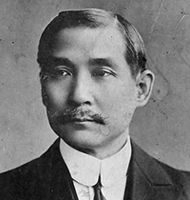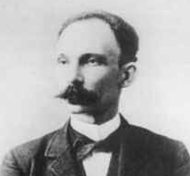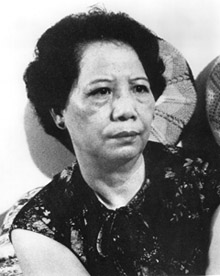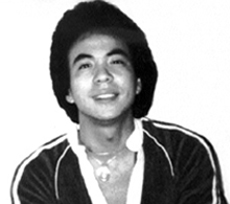 Buy the DVD
Buy the DVD
Director's StatementI’m an Asian American, but I did not know who Vincent Chin was until nearly 25 years after his brutal murder. For me, growing up was a mixed cultural experience. I was raised in a traditional Chinese family, I lived in a Hispanic community where nearly all my friends and neighbors were Hispanic, and I received an American education at school. Beyond relatives who were much older than me, I did not know any Asian Americans.
In elementary school, my teachers nurtured my American identity with stories from the American Revolution, such as the Boston Tea Party—"no taxation without representation"; the signing of the Declaration of Independence—"we hold these truths to be self-evident, that all men are created equal"; the midnight ride of Paul Revere—"the British are coming!"; Patrick Henry’s speech, "Give me liberty or give me death!"; and John Paul Jones’ refusal to surrender, "I have not yet begun to fight!" These uniquely American stories were ingrained in me from an early age. Indeed, I recall one special occasion in the second grade when my classmates and I came to school dressed up as our favorite character from the American Revolution. I decided to go as George Washington, whose heroic crossing of the Delaware on Christmas night captured my imagination. Somehow, perhaps the teachers thought it would be amusing, I ended up winning a prize that day for my costumed portrayal. I remember returning home that afternoon a proud, patriotic and beaming second-grader.  At home, my father instilled pride in my Chinese heritage by regaling me with tales of famous figures from Chinese history and literature, like the warring generals from the Chinese classic, The Romance of the Three Kingdoms. But above all, my father sang the praises of Sun Yat-sen, the "Father of Modern China." As a revolutionary and president of China’s first Republic, Sun Yat-sen was my father’s hero, a man who made my dad proud to be Chinese. And the fact that Sun Yat-sen heralded from my father’s own hometown only made him even prouder. My dad would oft proclaim, "Sun Yat-sen is the George Washington of China." In the Cuban community of Little Havana where I lived, the name of José Martí was as familiar to me as George Washington and Sun Yat-sen. As a leader of the Cuban independence movement from Spain and a renowned poet and writer, José Martí is considered the "Father of Cuba" and the greatest hero of the Cuban people. While the memory of José Martí did not factor into my own emerging sense of identity, I observed how pervasive his presence was in the collective consciousness of the Cuban exile community in Miami. The name of José Martí was impressed indelibly upon the mind of every Cuban child.  What George Washington, Sun Yat-sen, and José Martí share in common is that they are unifying figures. George Washington is beloved by Americans of all persuasions. Sun Yat-sen is that rare personality in modern Chinese history who is honored in Mainland China as well as in Taiwan. And whether you’re a Cuban living in Cuba or among the Cuban expatriate community in the United States, you hold José Martí in reverence. The stories of these individuals are told from generation to generation, precisely because of their unique power to unify and inspire people. As I grew up, I came to identify "Asian American" as the identity that best embodied who I am as an individual, but not without some measure of unease. When I looked around me, I saw that my Cuban friends and neighbors had the story of José Martí, my parents had the story of Sun Yat-sen, and all Americans had the story of George Washington. But as an Asian American, what story did I have to make sense of my identity?  When I observed other minorities in America, I wondered to myself: If I went into the African American community and asked someone to name one of their civil rights icons, I’d hear the names Martin Luther King, Jr., Rosa Parks, Malcolm X, and Jesse Jackson. If I went into the Hispanic community and asked the same question, I might hear the name Cesar Chavez. But if I went into the Asian American community and asked that same question, would I even be able to get an answer? Where were my civil rights heroes? In 2006, having moved to L.A. a few years previously, I began producing a television project called "Our Role Models," which honors outstanding Asian Americans. On one occasion, I interviewed Nhung Truong, a District Representative for California Congressman Adam Schiff. I asked Nhung what motivated her into politics and community activism, and she replied, "Vincent Chin." That was the first time I had heard the name "Vincent Chin." She told me how she came across a "V. Chin" T-shirt at a local festival, and then asked the woman at the booth who that name referred to. When the woman then told her the story of Vincent Chin, it moved her so deeply that it put her on a new path to seek political empowerment for Asian Americans. Nhung’s story sparked my curiosity and started me on my own exploration of Vincent Chin.  Once I became aware of the full story and legacy of Vincent Chin, I realized I had finally found my "Asian American story." But rather than the story of a singular historic figure, it is the story of a nascent community that rose up to right a tremendous wrong. When people of different and conflicting Asian backgrounds stood up and united across ethnic barriers to protest the racial injustice done to Vincent Chin, Asians in America started becoming "Asian Americans." A term that had previously abided solely in the halls of academia, on college campuses, and on a census form, now spread into the streets and became a real identity that all Asian people in America could begin to forge into their own. The story of Vincent Chin is about the making of this community. It is the Founding Story of Asian America! If we, Asian Americans, are to build upon a powerful unifying legacy, we need to coalesce around a shared history and develop our own unique oral tradition. We can start by telling the story of Vincent Chin in our homes, in our schools, and in our neighborhoods. We can start by celebrating our civil rights trail-blazers, like Lily Chin (Vincent Chin’s mother), Helen Zia, Roland Hwang, Jim Shimoura, and Stewart Kwoh, who stood up defiantly against a justice system that denied the humanity of Vincent Chin, and by extension, all Asian Americans. Their courageous efforts inspired a pan-Asian American movement that continues to influence Asian American political activism to the present day.  For me personally, I was motivated to make VINCENT WHO? for the vast majority of people out there, who in spite of Vincent Chin’s monumental significance in the Asian American experience, have little or no knowledge of him (as was the case with me). My hope is to see this film introduce Vincent Chin to generations too young to know him, rekindle his memory for generations who have since forgotten him, and contribute toward the day when "Vincent Chin" becomes a familiar name among Asian Americans, and the names of individuals, like Lily Chin and Helen Zia, stand among this country’s pantheon of civil rights heroes. VINCENT WHO? may be a humble tribute to the towering legacy of Vincent Chin and all who have fought for racial equality, social justice, and political progress for Asian Americans. Nevertheless, if a "V. Chin" T-shirt could end up transforming Nhung Truong’s life, then I have no doubt that VINCENT WHO? can and will make a difference, because the power of Vincent Chin's story is undeniable. So to those who see this film and want to start making an impact, I'd simply say: Just tell the story! Tony Lam 2010 Addendum: When making VINCENT WHO?, I approached it as an interested seeker of truth and knowledge from those more connected to the case. Unlike many of the participants in the film, I did not have direct ties to Vincent Chin's family or to 1980s Detroit. Or at least that's what I thought. But life has its surprises.... Several months after the completion of the film, I received an excited phone call from a cousin in New York. An uncle of ours was visiting from out-of-town, and she casually mentioned to him that I had been shooting a documentary on Vincent Chin, to which he replied: "I knew Vincent. We were friends." I was astonished by this revelation. One of my own family relations actually knew Vincent. Suddenly, through my Uncle Jack, I felt a deeper intimate connection to Vincent Chin's story. So at the next Thanksgiving reunion, I seized the opportunity to interview my uncle on-camera. I was very curious as to how he came to be friends with Vincent. Most of all, I wanted to know what Vincent was like as a person from someone who knew him as a peer. I've posted that interview here. |